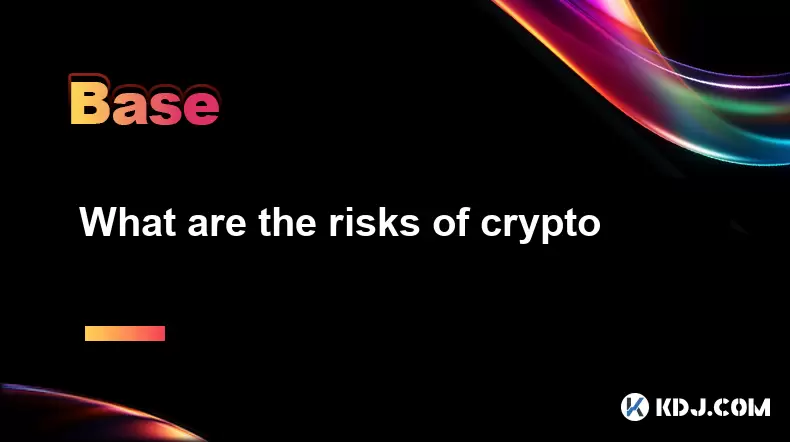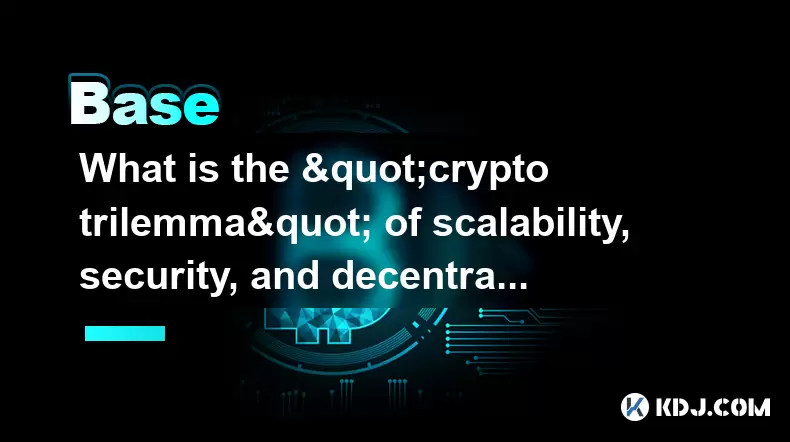-
 Bitcoin
Bitcoin $118100
0.44% -
 Ethereum
Ethereum $3765
5.84% -
 XRP
XRP $3.498
3.12% -
 Tether USDt
Tether USDt $1.000
0.00% -
 BNB
BNB $753.2
3.41% -
 Solana
Solana $181.7
3.58% -
 USDC
USDC $0.9999
0.01% -
 Dogecoin
Dogecoin $0.2704
12.75% -
 Cardano
Cardano $0.8684
5.85% -
 TRON
TRON $0.3151
-0.86% -
 Hyperliquid
Hyperliquid $46.06
4.51% -
 Stellar
Stellar $0.4695
2.48% -
 Sui
Sui $3.910
3.18% -
 Chainlink
Chainlink $19.36
6.65% -
 Hedera
Hedera $0.2750
3.99% -
 Bitcoin Cash
Bitcoin Cash $544.6
6.31% -
 Avalanche
Avalanche $25.12
3.69% -
 Shiba Inu
Shiba Inu $0.00001559
5.40% -
 Litecoin
Litecoin $116.8
5.10% -
 UNUS SED LEO
UNUS SED LEO $8.991
0.05% -
 Toncoin
Toncoin $3.283
2.79% -
 Polkadot
Polkadot $4.509
3.97% -
 Uniswap
Uniswap $10.67
6.58% -
 Ethena USDe
Ethena USDe $1.001
-0.01% -
 Monero
Monero $323.2
0.48% -
 Pepe
Pepe $0.00001410
6.37% -
 Bitget Token
Bitget Token $4.964
1.93% -
 Dai
Dai $0.9998
-0.01% -
 Aave
Aave $326.2
3.85% -
 Bittensor
Bittensor $421.8
2.46%
What are the risks of crypto
Cryptocurrency markets are highly volatile, with prices swinging dramatically due to regulatory news, macroeconomic shifts, or investor sentiment.
Jul 11, 2025 at 05:49 am

Market Volatility
The cryptocurrency market is known for its high volatility, which can lead to significant price swings within a short period. This characteristic makes it challenging for investors to predict the movement of asset values accurately. For instance, Bitcoin or Ethereum may experience double-digit percentage changes in value within a single day, driven by factors such as regulatory news, macroeconomic shifts, or investor sentiment.
This kind of unpredictability can result in substantial financial losses if not managed carefully. Traders who fail to set stop-loss orders or over-leverage their positions often face liquidation during sudden downturns. It's crucial to understand that while high returns are possible, they come with increased exposure to risk due to this inherent instability in the crypto ecosystem.
Regulatory Uncertainty
Cryptocurrencies operate in a rapidly evolving legal landscape where regulatory frameworks vary significantly across jurisdictions. Some countries have embraced digital assets with open arms, while others have imposed strict bans or restrictions. The lack of uniformity creates confusion and poses compliance challenges for users and businesses alike.
For example, a government could suddenly announce new anti-crypto policies or tax regulations without prior notice, causing panic selling and downward pressure on prices. Additionally, platforms hosting crypto services might be forced to shut down operations overnight if they fail to meet newly introduced requirements. Therefore, staying updated with local laws and understanding how they apply to your specific situation is essential to avoid potential legal repercussions.
Security Vulnerabilities
Despite advancements in blockchain technology, the crypto space remains vulnerable to security breaches and cyberattacks. Exchanges, wallets, and smart contracts are frequent targets for hackers seeking to exploit weaknesses in code or infrastructure. High-profile incidents like the Mt. Gox collapse or the Poly Network hack highlight how even well-established platforms can fall victim to malicious actors.
To mitigate these threats, users must adopt robust security practices such as using hardware wallets instead of hot storage solutions, enabling two-factor authentication (2FA), and regularly updating software. Furthermore, conducting thorough research before interacting with decentralized finance (DeFi) protocols or non-fungible token (NFT) marketplaces helps identify projects with audited smart contracts and transparent development histories.
Scams and Fraudulent Activities
The anonymity offered by many cryptocurrencies has attracted a wide range of fraudulent schemes aimed at deceiving unsuspecting investors. From fake initial coin offerings (ICOs) to phishing attacks and Ponzi schemes disguised as legitimate investment opportunities, the number of scam-related losses continues to rise annually.
One common tactic involves impersonating trusted figures or organizations through social media channels or messaging apps to gain access to private keys or personal information. Users should always verify the authenticity of communication sources and never share sensitive details under any circumstances. Conducting background checks on team members behind a project, reviewing whitepapers thoroughly, and checking community feedback forums like Reddit or Trustpilot can help distinguish genuine ventures from scams.
Liquidity Concerns
Not all cryptocurrencies enjoy the same level of liquidity as major ones like Bitcoin or Ethereum. Smaller altcoins or newer tokens often suffer from low trading volumes, making it difficult for holders to buy or sell large amounts without affecting market prices dramatically. In extreme cases, some assets become nearly impossible to offload when demand dries up entirely.
This issue becomes particularly problematic during periods of heightened market stress when panic selling exacerbates illiquidity conditions further. Investors considering niche or obscure crypto projects should assess exit strategies beforehand and consider diversifying investments across multiple asset classes rather than concentrating holdings solely within volatile micro-cap coins.
Operational Risks and Technical Failures
Beyond external threats, there are internal operational risks associated with managing digital assets effectively. Technical failures such as wallet malfunctions, incorrect transaction broadcasts, or loss of recovery phrases can result in irreversible fund loss. Unlike traditional banking systems where customer support teams assist in retrieving misplaced funds, blockchain transactions are final once confirmed.
Users must ensure they follow best practices when setting up wallets, backing up seed phrases offline securely, and testing small transactions before executing larger transfers. Utilizing reputable wallet providers with strong reputations and actively participating communities increases the likelihood of resolving technical issues efficiently.
Frequently Asked Questions
What steps can I take to protect my crypto assets from theft?
You should store your assets in cold wallets whenever possible, enable multi-signature features for added security, use strong passwords combined with biometric verification methods, and avoid sharing any personal identification details online related to your holdings.
Is it safe to invest in lesser-known cryptocurrencies?
Investing in smaller cap cryptocurrencies carries higher risk due to limited liquidity, less transparency regarding underlying technology, and greater susceptibility to manipulation. Always perform comprehensive due diligence before allocating capital towards such assets.
How does regulatory action impact individual crypto investors?
Regulatory actions can influence everything from taxation obligations to permissible trading activities. Staying informed about policy developments ensures you remain compliant and prepared for any adjustments needed in portfolio management approaches.
Can I recover lost crypto if I send it to the wrong address?
Unfortunately, most blockchain transactions cannot be reversed once executed successfully. Double-check recipient addresses meticulously before confirming transfers and utilize tools designed to validate destination formats automatically where available.
Disclaimer:info@kdj.com
The information provided is not trading advice. kdj.com does not assume any responsibility for any investments made based on the information provided in this article. Cryptocurrencies are highly volatile and it is highly recommended that you invest with caution after thorough research!
If you believe that the content used on this website infringes your copyright, please contact us immediately (info@kdj.com) and we will delete it promptly.
- Crypto & Institutions in July 2025: What's the Hype?
- 2025-07-21 04:30:12
- Pepeto, DOGE, SHIB Prices: What's Hot and What's Not in the Meme Coin Mania
- 2025-07-21 04:30:12
- Bitcoin Bulls Eye $125K Breakout: Is the Digital Gold Rush Back On?
- 2025-07-21 05:10:12
- Decrypting Crypto: Bitcoin's Real-World Utility and the Future of Finance
- 2025-07-21 05:15:12
- Tezos Price Surge: XTZ Prediction & What's Behind the Massive Net Inflows
- 2025-07-21 05:20:12
- Uniswap (UNI) Price Prediction: Bullish Breakout and Market Cap Momentum
- 2025-07-21 05:25:12
Related knowledge

What is the difference between a sidechain and a Layer 2?
Jul 20,2025 at 11:35pm
Understanding the Concept of SidechainsA sidechain is a separate blockchain that runs parallel to the main blockchain, typically the mainnet of a cryp...

What is the Inter-Blockchain Communication Protocol (IBC)?
Jul 19,2025 at 10:43am
Understanding the Inter-Blockchain Communication Protocol (IBC)The Inter-Blockchain Communication Protocol (IBC) is a cross-chain communication protoc...

How does sharding improve scalability?
Jul 20,2025 at 01:21am
Understanding Sharding in BlockchainSharding is a database partitioning technique that is increasingly being adopted in blockchain technology to enhan...

What is the "crypto trilemma" of scalability, security, and decentralization?
Jul 19,2025 at 06:28pm
Understanding the Concept of the Crypto TrilemmaThe crypto trilemma refers to the challenge of simultaneously achieving scalability, security, and dec...

What is a cliff and vesting schedule in tokenomics?
Jul 20,2025 at 10:28am
What Does a Cliff Mean in Tokenomics?In tokenomics, a cliff refers to a specific period during which token holders are not allowed to access or transf...

Can I create my own cryptocurrency?
Jul 20,2025 at 11:49pm
Understanding the Basics of Creating a CryptocurrencyYes, you can create your own cryptocurrency, but it involves a combination of technical knowledge...

What is the difference between a sidechain and a Layer 2?
Jul 20,2025 at 11:35pm
Understanding the Concept of SidechainsA sidechain is a separate blockchain that runs parallel to the main blockchain, typically the mainnet of a cryp...

What is the Inter-Blockchain Communication Protocol (IBC)?
Jul 19,2025 at 10:43am
Understanding the Inter-Blockchain Communication Protocol (IBC)The Inter-Blockchain Communication Protocol (IBC) is a cross-chain communication protoc...

How does sharding improve scalability?
Jul 20,2025 at 01:21am
Understanding Sharding in BlockchainSharding is a database partitioning technique that is increasingly being adopted in blockchain technology to enhan...

What is the "crypto trilemma" of scalability, security, and decentralization?
Jul 19,2025 at 06:28pm
Understanding the Concept of the Crypto TrilemmaThe crypto trilemma refers to the challenge of simultaneously achieving scalability, security, and dec...

What is a cliff and vesting schedule in tokenomics?
Jul 20,2025 at 10:28am
What Does a Cliff Mean in Tokenomics?In tokenomics, a cliff refers to a specific period during which token holders are not allowed to access or transf...

Can I create my own cryptocurrency?
Jul 20,2025 at 11:49pm
Understanding the Basics of Creating a CryptocurrencyYes, you can create your own cryptocurrency, but it involves a combination of technical knowledge...
See all articles

























































































